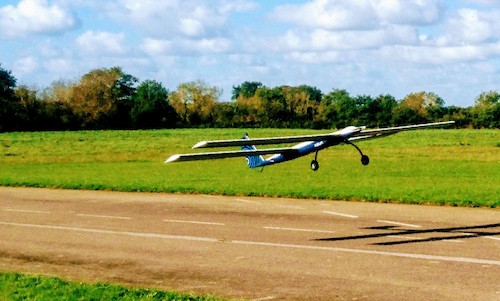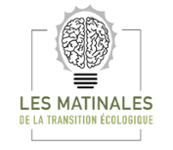- Energy transition,
- Xsun,
- Industry of the future - Manufacturing,
XSun, world's first autonomous drone
Following a first successful test flight on October 30, 2017, the world's first drone, which is autonomous in energy and decision-making, was inaugurated on Monday, November 6th. The drone was designed by a French start-up, XSun, in partnership with Centrale Nantes, Airbus and Dassault Systèmes.
Powered by solar energy, its consumes less than its capacity to recharge itself. The drone is thus set to smash the world record for flight duration in 2018.
on November 8, 2017

"This inauguration and first flight mark the first milestone in an ambitious project. The next step will be to beat the world flight record which currently stands at 14 days, and finally to demonstrate that we can cross the Atlantic with a drone”. Benjamin David, CEO of XSun
"This project draws on a combination of several advanced technologies: materials, communication, control and artificial intelligence, and energy management, and builds on work undertaken across several generations of students, teachers and researchers. This will make it a success in 2018." Bertrand Alessandrini, Director of Development at Centrale Nantes.
Drones respond to a growing need in both civilian and military fields, but their use today is limited by autonomy issues. XSun opens up new opportunities thanks to the long and continuous flights that it can provide.
Centrale Nantes has invested in the start-up via Centrale Innovation, and provides financial support.
"This project draws on a combination of several advanced technologies: materials, communication, control and artificial intelligence, and energy management, and builds on work undertaken across several generations of students, teachers and researchers. This will make it a success in 2018." Bertrand Alessandrini, Director of Development at Centrale Nantes.
Applications
Drones respond to a growing need in both civilian and military fields, but their use today is limited by autonomy issues. XSun opens up new opportunities thanks to the long and continuous flights that it can provide.- Ground surveillance for infrastructure and networks that require recurrent monitoring: gas and oil pipelines, railway lines, electricity lines, public safety and natural environments etc.
- Maritime surveillance: the high degree of autonomy means that missions beyond the reach of conventional civil drones can be envisaged: e.g. supporting species detection for fishing and maritime surveillance, maritime traffic, emptying of fuel tanks etc.
- Precision agriculture: for modern farming, precise knowledge of the state of vegetation is essential. XSun provides the necessary solutions for large areas (> 500 acres).
- Relief and humanitarian missions: XSun will be able to operate for long search periods over large and difficult to access areas, or disaster areas in the event of natural disasters (earthquakes, fire, etc.)
Centrale Nantes and XSun
Centrale Nantes participated in the research and development of the drone, particularly in the areas of materials, energy management, communication, control and artificial intelligence - key fields within the school. XSun was created within the Centrale-Audencia-ensa Nantes incubator, and as such, benefited from economic and scientific development support.Centrale Nantes has invested in the start-up via Centrale Innovation, and provides financial support.











